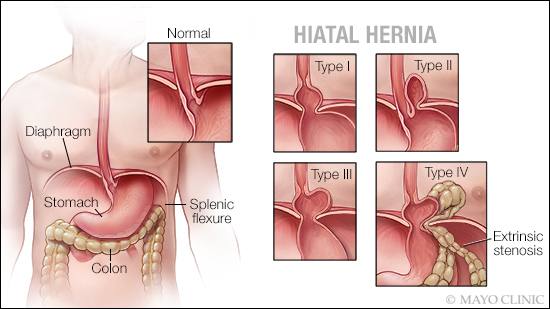Hiatal Hernia Surgery in Paris
Search and Compare the Best Clinics and Doctors at the Lowest Prices for Hiatal Hernia Surgery in Paris

Find the best clinics for Hiatal Hernia Surgery in Paris
No pricing info available
Morocco offers the best prices Worldwide
Price: $ 520
From 161 verified reviews
latifa Rabhi, 06 September 2020
Very fast support, with highly qualified and human staff.The rooms are beautiful and very quiet.Calm and gentleness in this hospital, I highly recommend.
WHY US?
At Medijump, we're making medical easy. You can search, compare, discuss, and book your medical all in one place. We open the door to the best medical providers worldwide, saving you time and energy along the way, and it's all for FREE, no hidden fees, and no price markups guaranteed. So what are you waiting for?

Free

Best Price

Widest Selection

Risk-Free
What you need to know about Hiatal Hernia Surgery in Paris

A Hiatal Hernia is when the stomach extends up into the chest through an opening in the diaphragm. Hiatal hernia surgery is a surgical procedure to repair and return the stomach to its normal location and is normally performed when the symptoms are severe or it did not respond well to other treatments.
What does a Hiatal Hernia Surgery Procedure Involve?
Hiatal hernia surgery can be performed as a laparoscopic or open surgery; both are done under general anesthetic. With open surgery, your surgeon makes a single large incision in your abdomen and returns your stomach to where it belongs and wraps it around the lower part of the esophagus to create a tighter sphincter. With laparoscopic surgery, your surgeon will make 3 to 5 small incisions to insert surgical instruments and the laparoscope. The laparoscope transmits images of the internal organ to a monitor, guiding your surgeon through the surgery.
How Long Should I Stay in Paris for a Hiatal Hernia Surgery Procedure?
You may need to stay in the hospital for 1 to 3 days, but you should plan to stay in Paris a lot longer. Plan to stay for at least 7 to 14 days or when you get sign-off from your surgeon. During your stay, you will need to attend scheduled follow up appointments and also removal of the stitches.
What's the Recovery Time for Hiatal Hernia Surgery Procedures in Paris?
A full recovery may take about 10 to 12 weeks, but you can resume some of your daily routines and work within 6 to 8 weeks. If you have a physically demanding job, you probably need around 3 months before you can return. However, when the surgery is performed through a laparoscopic method, you may be able to recover in just a few weeks.
What sort of Aftercare is Required for Hiatal Hernia Surgery Procedures in Paris?
After a hiatal hernia surgery, you need to avoid baths, hot tubs, or pools. Instead, you can wash your body by taking a shower. You will have a restricted diet to prevent your stomach from extending, this diet involves eating four to six meals per day rather than 3 large meals, as well as avoiding food that causes gas. Your doctor will also give you coughing and breathing exercises to help strengthen your diaphragm.
What's the Success Rate of Hiatal Hernia Surgery Procedures in Paris?
A hiatal hernia surgery is effective and safe, with around 90% to 95% success rate. The mortality rate after the laparoscopic method is 0.57%, while the mortality rate after open surgery is about 1.0% - 2.7%. Just like any surgery, there are risks, complications, and that you need to be aware of, including bleeding, injury to internal organs, infection, diarrhea, abdominal bloating, and recurrence of the hernia.
Are there Alternatives to Hiatal Hernia Surgery Procedures in Paris?
Hiatal hernia surgery is effective for those that experience severe symptoms. If your symptoms are mild, you can opt for medications or home treatment.
What Should You Expect Before and After the Procedure?
Once you have fully recovered, the symptoms that you experience before the surgery, such as nausea and heartburn, should subside.
Whilst the information presented here has been accurately sourced and verified by a medical professional for its accuracy, it is still advised to consult with your doctor before pursuing a medical treatment at one of the listed medical providers
No Time?
Tell us what you're looking for and we'll reachout to the top clinics all at once
Enquire Now

Popular Procedures in Paris
Prices Start From $42

Prices Start From $4

Prices Start From $260

Prices Start From $520

Prices Start From $714

Recommended Medical Centers in Paris for Hiatal Hernia Surgery

- Interpreter services
- Translation service
- Religious facilities
- Medical records transfer
- Medical travel insurance
- Health insurance coordination
- TV in the room
- Safe in the room
- Phone in the room
- Private rooms for patients available

- Interpreter services
- Translation service
- Religious facilities
- Medical records transfer
- Medical travel insurance
- Health insurance coordination
- TV in the room
- Safe in the room
- Phone in the room
- Private rooms for patients available

- Interpreter services
- Translation service
- Religious facilities
- Medical records transfer
- Medical travel insurance
- Health insurance coordination
- TV in the room
- Safe in the room
- Phone in the room
- Private rooms for patients available

- Interpreter services
- Translation service
- Religious facilities
- Medical records transfer
- Medical travel insurance
- Health insurance coordination
- TV in the room
- Safe in the room
- Phone in the room
- Private rooms for patients available

- Interpreter services
- Translation service
- Religious facilities
- Medical records transfer
- Medical travel insurance
- Health insurance coordination
- TV in the room
- Safe in the room
- Phone in the room
- Private rooms for patients available

- Interpreter services
- Translation service
- Religious facilities
- Medical records transfer
- Medical travel insurance
- Health insurance coordination
- TV in the room
- Safe in the room
- Phone in the room
- Private rooms for patients available

- Interpreter services
- Translation service
- Religious facilities
- Medical records transfer
- Medical travel insurance
- Health insurance coordination
- TV in the room
- Safe in the room
- Phone in the room
- Private rooms for patients available

- Interpreter services
- Translation service
- Religious facilities
- Medical records transfer
- Medical travel insurance
- Health insurance coordination
- TV in the room
- Safe in the room
- Phone in the room
- Private rooms for patients available

- Interpreter services
- Translation service
- Religious facilities
- Medical records transfer
- Medical travel insurance
- Health insurance coordination
- TV in the room
- Safe in the room
- Phone in the room
- Private rooms for patients available

- Interpreter services
- Translation service
- Religious facilities
- Medical records transfer
- Medical travel insurance
- Health insurance coordination
- TV in the room
- Safe in the room
- Phone in the room
- Private rooms for patients available
Hiatal Hernia Surgery in and around Paris
About Paris
Paris is the capital and most populous city of France and it is the second-most visited country in the world and it is easy to see why. The city is considered as an international center of fashion, culture, art, and gastronomy. Its boulevards are lined with museums, world-famous monuments, classical bistros and boutiques, wine bars, and design shops that successfully captured the heart of its visitors. Besides a popular destination for leisure, Paris is also one of the leaders in Europe for medical tourism. Hospitals and clinics in the city are well-equipped and are able to perform all manner of medical treatments for international tourists. The doctors and nurses offer the highest level of care that is hard to rival.
Popular Parts of Paris
Paris is filled with iconic monuments with thousands of years of history. The most popular attraction of the city, as well as France’s symbol, is the Eiffel Tower. Visitors are allowed to climb as far as the 2nd floor via the south pillar’s 720 stairs or ride the elevator to the top. Besides the Eiffel Tower, visitors can stroll around the glamorous avenue des Champs-Élysées and admire Arc De Triomphe, admire the exquisite décor of Sainte-Chapelle, wander along the Seine, or try the city’s art nouveau cafes. Visiting Paris will never be complete without exploring its museums. One of the most popular is the Louvre, which is the biggest museum in the world with thousands of famous works, including the Mona Lisa.
Transport in Paris
Paris Charles de Gaulle Airport is the main international gateway to the city. It connects the city with almost every country around the world. Getting around Paris is easy as the city boasts one of the most efficient public transportation systems in the world. The metro subway system is extensive, generally safe, easy to use, and the trains usually arrive on time. The buses are spacious and affordable. There is also a commuter express (“RER”) train service that will take you to the city’s most important areas. Taxis are available and can be found easily.
Visas in Paris
France is a member of the Schengen Agreement, meaning citizens of 62 countries, including Singapore, the US, and Australia do not need a visa to enter and stay in the country for up to 90 days. Other nationals not listed in the visa-free entry should obtain and apply for a visa and always check at the nearest French embassy or consulate for the requirements.
Weather in Paris
Spring (March-May) has mild temperatures with a lot of rainy days. Summer starts in June bringing warm temperatures and sunny days. The average temperature during the summer is around 18°C. The temperature will slowly decrease in autumn (September – November), but the weather is still generally pleasant. Winter can be cold as the temperature drop to 4°C.
Additional Info
- Local Currency: The official currency is the euro. 1 EUR is approx. 1.12 USD.
- Money & Payments: ATMs are widely available. Debit and credit cards are accepted almost everywhere. Tipping can be mandatory in certain places.
- Local Language: French is the official language, but many people in tourist areas speak English.
- Local Culture and Religion: Paris has a diverse religion, with Christianity as the biggest. Other religions, such as Islam, Buddhism, and Judaism, are present.
- Public Holidays: Paris celebrates 11 official public holidays, including New Year’s Day, Easter Monday, Bastille Day, and Christmas Day.
Popular Searches
- Plastic Surgery in Thailand
- Dental Implants in Thailand
- Hair Transplant in Thailand
- Breast Augmentation Thailand
- Gastric Sleeve in Thailand
- Gender Reassignment Surgery in Thailand
- Laser Hair Removal in Bangkok
- Botox in Bangkok
- Dermatology in Bangkok
- Breast Augmentation in Bangkok
- Coolsculpting in Bangkok
- Veneers in Turkey
- Hair Transplant in Turkey
- Rhinoplasty in Turkey
- Stem Cell Therapy in Mexico
- Rhinoplasty in Mexico
- Liposuction in Mexico
- Coolsculpting in Tijuana
- Rhinoplasty in Korea
- Scar Removal in Korea
- Gastric Sleeve in Turkey
- Bone Marrow Transplant in India
- Invisalign in Malaysia
- Plastic Surgery in the Dominican Republic
- Tummy Tuck in the Dominican Republic
- Plastic and Cosmetic Surgery in Poland
- Rhinoplasty in Poland
- Hair Implant in Poland
- Dental Implants in Poland
- IVF in Turkey
